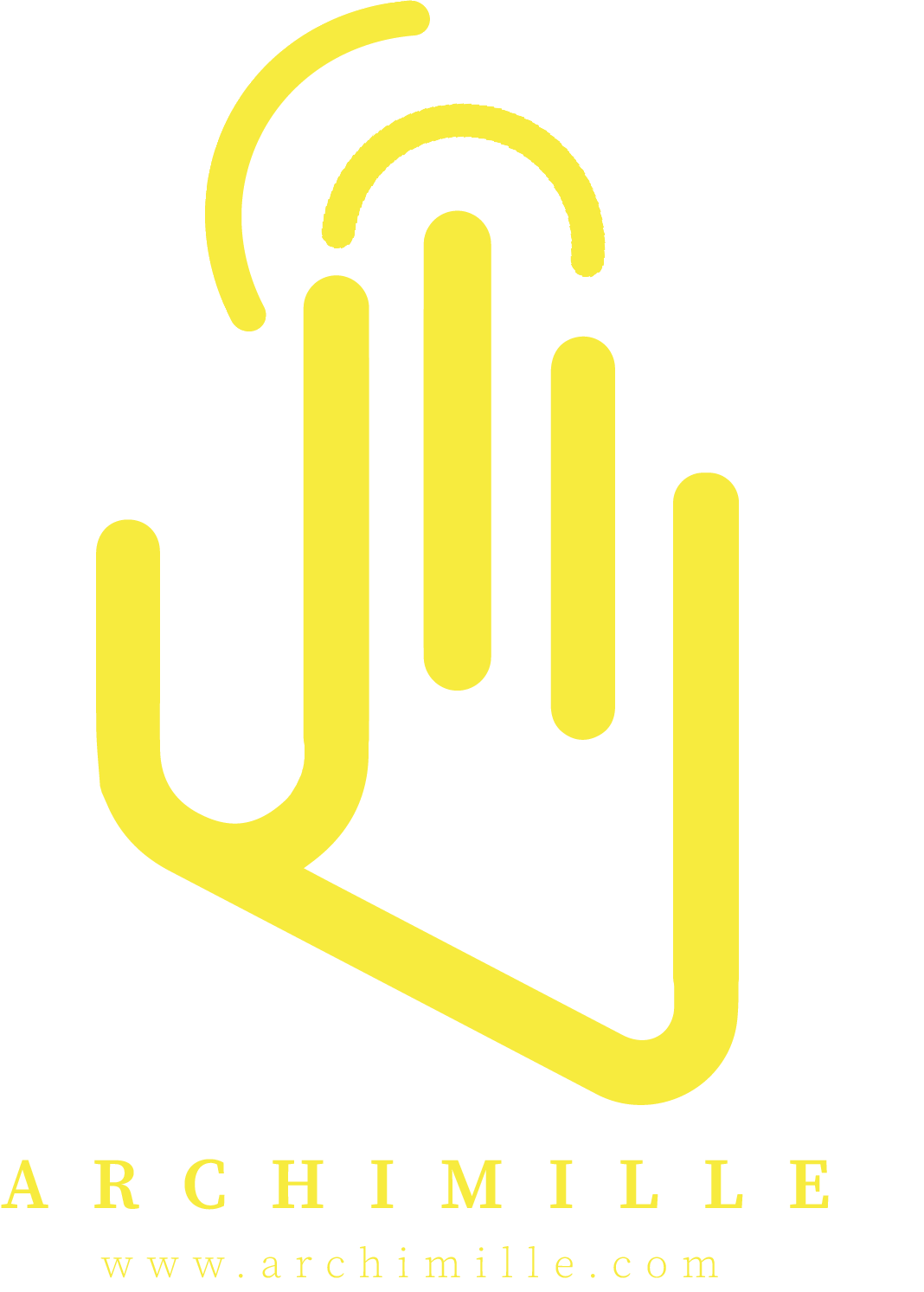Small Business Hazard Insurance is a critical component of risk management for any organization, encompassing various coverage options that safeguard businesses against unexpected hazards. Unexpected situations—ranging from natural disasters to theft—can create significant disruptions in operations, leading to financial instability or even the closure of a company. Understanding the importance of protecting businesses through hazard insurance is essential, especially for small business owners who may not have the financial buffer to absorb these sudden losses.
Small business hazard insurance specifically addresses the unique challenges faced by smaller enterprises that often operate on tight budgets. Unlike larger corporations that may have vast reserves, small businesses typically lack the resources needed to recover from significant setbacks. This makes them particularly susceptible to the devastating effects of unforeseen events. For instance, a fire in a small retail shop can lead to extensive property damage and business interruption that might leave the owner struggling to pay employees and vendors. It underscores why having comprehensive coverage is not just beneficial but essential for survival in today’s unpredictable business landscape.
Hazard insurance for business covers various risks, including property damage, machinery breakdown, and liability claims. Commercial hazard insurance serves as a safety net, providing financial support to help businesses recover from physical losses. This type of insurance often includes property insurance, which protects physical assets such as buildings and equipment, as well as business interruption coverage that compensates for lost income when a business is temporarily unable to operate. Many business owners mistakenly believe that their general liability insurance suffices, but such policies typically do not include coverage for property damage or loss of income, leading to potentially dangerous gaps in protection.
The importance of business hazard insurance becomes evident when considering statistics on business continuity. According to studies, approximately 40% of small businesses do not reopen after experiencing a catastrophic event. This figure highlights the critical need for hazard insurance and demonstrates the role it plays in keeping businesses operational after unexpected disruptions. Small business hazard insurance is designed to mitigate these risks and offer peace of mind, allowing entrepreneurs to focus on growth and development rather than worrying about potential disasters.
Furthermore, understanding the different types of commercial hazard insurance available can empower business owners to make informed decisions. An in-depth assessment of risks and a consultation with insurance professionals can guide them in selecting the coverage that aligns with their specific needs. Factors such as industry sector, property value, and prior claims history can significantly influence insurance premiums and coverage options. By taking the time to thoroughly research and compare policies, business owners can secure appropriate coverage that protects their long-term investments.
Business Hazard Insurance is a vital instrument in protecting businesses from unforeseen hazards, ensuring they remain viable despite temporary setbacks. Small business hazard insurance, in particular, caters to the needs of smaller establishments and offers crucial protection against property damage and income loss. By investing in hazard insurance for business, particularly commercial hazard insurance, business owners not only shield their assets but also enhance their chances of survival and success in an ever-evolving marketplace. Seeking the right insurance solutions is an essential step in building a resilient business capable of navigating the uncertainties of the future.
Table of Contents
ToggleWhat is Small Business Hazard Insurance ?
Small Business Hazard Insurance is a specialized form of coverage designed to protect commercial enterprises from an array of unexpected risks and hazards. This insurance type covers various incidents that can adversely affect a business’s operations, including property damage from natural disasters, theft, vandalism, and equipment breakdown. At its core, hazard insurance for business is aimed at mitigating the financial consequences that arise when unpredictable events disrupt normal business activities. Given the volatile nature of the business environment, having such insurance is paramount for businesses aiming to sustain operations and protect their investments.
One of the predominant types of Business Hazard Insurance is small business hazard insurance. This type of insurance is specifically tailored to meet the unique needs and risks associated with small businesses. Small businesses often operate with tighter margins and fewer resources than larger corporations, making them particularly vulnerable to disruptions. For instance, if a small business encounters a natural disaster such as a hurricane or flood, the costs of repairs may be overwhelming without adequate insurance coverage. Small business hazard insurance typically encompasses property coverage, liability coverage, and business interruption insurance, providing comprehensive protection tailored for smaller-scale operations.
Commercial hazard insurance, on the other hand, offers broader coverage suitable for larger enterprises or businesses with complex needs. This insurance helps cover physical assets, including commercial buildings, inventory, machinery, and equipment. Additionally, it may cover business interruption, which compensates owners for lost income during periods when the business cannot operate due to unforeseen events. The importance of commercial hazard insurance cannot be overstated, as it plays a critical role in financial planning and risk management strategies for businesses of all sizes.
In essence, hazard insurance for business covers a spectrum of potential risks, ensuring that a business can recover and maintain continuity in the face of adversity. The coverage typically includes protection against fire, theft, weather-related damages, and other events that could compromise a business’s ability to operate. Furthermore, many policies offer additional options and riders that can customize coverage to include factors such as cyber liability, equipment breakdown, and employee-related risks. This flexibility allows business owners to tailor their insurance package according to their specific industry requirements.
It’s also worth noting that understanding and acquiring business hazard insurance can enhance a company’s credibility and attract potential investors. When business owners can demonstrate that they have taken proactive steps to protect their assets, creditors and stakeholders may feel more confident in the organization’s stability. Given the unpredictable nature of the business landscape, having small business hazard insurance or commercial hazard insurance in place can be a key differentiator in achieving long-term success.
Moreover, many business owners may not realize that hazard insurance is not a one-size-fits-all solution. Various industries carry distinct risks, and policies should reflect the unique challenges associated with a specific business type. For example, a restaurant faces different hazards than a manufacturing plant or a tech startup. As such, consulting with an insurance professional is essential for determining the appropriate coverage levels and types specific to individual business needs and risk profiles.
Why is Small Business Hazard Insurance Important ?
Business Hazard Insurance is crucial for any enterprise wishing to protect its investments, operations, and overall financial health. At its core, this type of insurance provides a safety net against unforeseen events that could disrupt or even cripple a business. The importance of this coverage becomes even more pronounced when considering the range of potential risks faced by businesses in today’s volatile environment, such as natural disasters, theft, fires, and liability claims. By investing in hazard insurance for business, owners can ensure they have a financial buffer in place, which is pivotal for maintaining continuity during challenging times.
For small businesses, the significance of small business hazard insurance cannot be understated. Small enterprises often operate with limited resources, making them particularly vulnerable when adversity strikes. Without insurance, a single catastrophic event, such as a severe storm damaging a storefront, could lead to overwhelming repair costs and potential bankruptcy. Small business hazard insurance not only covers physical property damage but also helps business owners recover lost income due to business interruptions. Such coverage is essential for safeguarding the livelihoods of the business owners and employees alike, emphasizing the need for an adequate insurance plan tailored to the unique risks faced by smaller operations.
Commercial hazard insurance plays a broader role in protecting larger businesses or those with more complex operational structures. This type of insurance typically covers significant assets such as commercial properties, machinery, and inventory. Additionally, it provides liability coverage for third-party claims arising from accidents or damages related to the business’s operations. The diverse nature of commercial hazard insurance allows for customizable policies that can cater to a company’s specific needs, ensuring comprehensive protection against a wide range of potential hazards. In today’s fast-paced market, where businesses are increasingly exposed to various risks, having robust commercial hazard insurance has become a fundamental aspect of risk management.
Another essential aspect of the importance of business hazard insurance is that it fosters a sense of confidence and stability within the business environment. When business owners know they are protected, they can focus on growth, innovation, and improving their services or products rather than constantly worrying about potential threats. This security can also enhance relationships with investors and creditors, as they often look for assurances that a company has mitigated risk effectively. A business with a sound hazard insurance plan signals that it values not only its assets but also the well-being of its employees and customers, thereby establishing a trustworthy image in the marketplace.
Moreover, understanding the statutory and regulatory requirements surrounding business operations can further underline the importance of hazard business insurance. Many jurisdictions expect businesses to carry certain levels of insurance to operate legally, ensuring they are protected against risks that could adversely impact their employees and customers. Small business hazard insurance often aligns with these regulatory demands, ensuring compliance while simultaneously offering the necessary protection.
Additionally, as businesses evolve and adapt to changing market conditions, so too do their risk exposures. Failure to reassess and update coverage can leave businesses vulnerable to emerging risks, such as cyber threats, which may not have been considered when initial policies were established. Regular reviews of both small business hazard insurance and commercial hazard insurance can help identify gaps in coverage and ensure that businesses are adequately protected against evolving threats.
Key Features of Business Hazard Insurance
Business Hazard Insurance offers a comprehensive safety net tailored to meet the diverse needs of companies across various sectors. One of its primary features is property protection, which encompasses coverage for physical assets such as buildings, machinery, equipment, and inventory. This feature is particularly vital for small businesses, as many operate with limited financial resources. Small business hazard insurance ensures that, in the event of damages resulting from natural disasters like hurricanes or earthquakes, fires, or theft, the owners are not left to shoulder steep repair or replacement costs alone. By mitigating these financial burdens, small business owners can focus on maintaining operations and serving their customers effectively.
Another key feature of hazard insurance for business is business interruption coverage. This is crucial for all businesses, but especially for small enterprises, as they often lack the financial cushion larger corporations might have. Business interruption coverage compensates owners for lost income during periods when operations are halted due to a covered peril. For instance, if a fire damages a storefront, small business hazard insurance would provide compensation for the income lost during the repair period, enabling the business to sustain itself until it can reopen. This financial protection not only aids in recovery but also reinstates confidence for the business owner and their employees.
Liability protection represents another significant characteristic of commercial hazard insurance. Businesses face a multitude of risks when interacting with clients, suppliers, and even the public. If a customer sustains injuries on a business’s premises or due to its products, the company may be facing costly lawsuits. Commercial hazard insurance often includes general liability coverage, which helps cover legal fees, medical expenses, and settlements or judgments. This coverage is particularly important for small businesses, as a single claim could financially cripple them without suitable insurance. Therefore, ensuring adequate liability protection is a priority that responsible business owners recognize.
Moreover, customization is an important feature inherent in both small business hazard insurance and commercial hazard insurance. Policies can often be tailored to fit the specific risks associated with a particular industry or business model. For example, a restaurant may require different coverage compared to a construction company due to the varied risks they face. Insurers often offer riders or additional coverages, such as employee dishonesty, equipment breakdown, or cyber liability insurance, to enhance protection further. This customization allows business owners to create a policy that addresses their specific needs and risks, making their coverage as effective and efficient as possible.
Additionally, the administration of claims is another vital aspect of business hazard insurance. A reliable claims process is essential for ensuring that businesses can quickly recover from losses. Insurers providing business hazard insurance typically offer customer support and claims assistance, helping policyholders navigate the complexities of filing claims. A smooth claims process can be a lifesaver during stressful times, allowing business owners to focus on recovery rather than being bogged down by procedural hurdles.
Furthermore, many insurers offer risk management resources and consultation services as part of their commercial hazard insurance packages. These resources include risk assessments that help identify potential weaknesses within a business’s operations and suggestions on how to mitigate those risks effectively. By providing these tools, insurers empower business owners to proactively manage their risks and may even reduce their premiums in the long run.
Who Needs Business Hazard Insurance ?
Business Hazard Insurance is a crucial safety net for a diverse array of entities within the commercial landscape. Both small businesses and large corporations face risks that can result in significant financial losses due to unforeseen events like natural disasters, accidents, or theft. However, it is often the small businesses that are most in need of such protection. Small business hazard insurance is designed specifically to cater to the unique financial and operational challenges that smaller enterprises encounter. These businesses typically operate with limited resources and thin profit margins, making them particularly vulnerable to disruptions. Without hazard insurance, a small business could face devastating financial impacts that threaten its survival and long-term viability.
Freelancers, independent contractors, and solo entrepreneurs also significantly benefit from hazard insurance for business. These individuals often work from home or shared office spaces, which may not provide the comprehensive coverage needed to protect their professional equipment and liabilities. For example, a web developer working from their home office may have valuable technology and data that are not covered by homeowners’ insurance. In this case, obtaining small business hazard insurance is essential to protect their assets, ensure continuity of business operations, and shield against potential lawsuits from clients or third parties.
Moreover, businesses that maintain physical inventory or assets must prioritize commercial hazard insurance to protect their investments. Retailers, wholesalers, and manufacturers are heavily reliant on their physical goods, and any unforeseen incident—like a fire or flooding—could lead to substantial losses, impacting cash flow and the ability to replenish stock. Commercial hazard insurance not only protects these tangible assets but often helps businesses recover quickly by providing necessary funds to replace lost inventory, covering temporary relocation or repair expenses, and ensuring that business operations can be resumed as soon as possible.
Franchise owners also fall into the category of individuals who require business hazard insurance. They are obliged to adhere to specific insurance requirements stipulated by their franchise agreements, which might demand little more than commercial hazard insurance coverage. This insurance serves to protect franchisees against common risks associated with operating a business, including liability claims and business interruptions, ensuring compliance with broader brand operational standards while preserving assets.
Service-based businesses, including restaurants, salons, and fitness centers, are also in need of business hazard insurance. These types of businesses often contend with heightened exposure to risks due to high customer traffic and reliance on physical locations for services. An accident that injures a customer on the premises or equipment malfunction can have serious financial implications if a business is underinsured. Given the intense competition and slim margins in the service industry, commercial hazard insurance provides a necessary buffer, allowing businesses to navigate challenges without jeopardizing their financial health.
Additionally, companies operating within high-risk sectors such as construction and manufacturing have a compelling case for needing robust hazard insurance. Members of these industries frequently deal with accidents, environmental liabilities, or equipment fails, increasing their vulnerability to claims or operational interruptions. Comprehensive hazard insurance mitigates these risks, offering not only financial coverage for incidents but also promoting a safer workplace for employees and clients alike.
How to Choose the Right Business Hazard Insurance Policy
Choosing the right business hazard insurance policy is a fundamental step for any business owner looking to safeguard their investments and ensure long-term sustainability. With an array of options available, navigating through various policies can be daunting. However, understanding the specific needs of your business and what each policy offers will streamline the selection process significantly. First and foremost, it is essential to assess the unique risks associated with your business operations. For small businesses, this could entail evaluating factors such as location, industry, and the type of products or services offered. By identifying potential hazards—whether they stem from natural disasters, theft, equipment malfunction, or liability concerns—you can determine the level of coverage required. This assessment is particularly crucial for acquiring small business hazard insurance, as it aims to address the specific vulnerabilities that smaller entities face.
Next, consider the extent of coverage provided by different policies. Commercial hazard insurance often varies in terms of scope, and understanding what is included in each plan is vital. For instance, some policies may cover only structural damage, while others include liability protection, business interruption, and even equipment replacement. Businesses that possess significant physical assets or maintain a high level of customer interaction should seek comprehensive commercial hazard insurance that protects not only the physical premises but also the operations that support revenue generation. Additionally, reviewing any exclusions within a policy is critical; every insurance policy has limitations and knowing these exclusions helps prevent unpleasant surprises in the event of a claim.
Moreover, obtaining multiple quotes from different insurance providers can be beneficial. This process allows business owners to compare premiums, coverage limits, and the overall reputation of insurers in the market. It is important to remember that the lowest premium may not always equate to the best value; a well-structured small business hazard insurance policy that provides comprehensive coverage may be more advantageous than a cheaper alternatives that fall short when it comes to protection.
Another essential consideration is the insurer’s reputation and financial stability. Researching customer reviews, industry ratings, and the claims process of a potential insurance provider can offer valuable insights. A company well-known for excellent customer service and prompt claims handling will be vital when you need to file a claim, ensuring you receive support and compensation swiftly during stressful times.
When selecting hazard insurance for business, it is crucial to consult with a knowledgeable insurance agent or broker. They can provide tailored guidance based on your specific business context and help clarify jargon surrounding insurance terms. An experienced professional will understand the intricacies of various policies and assist in identifying coverage gaps or recommending add-ons that enhance protection, ensuring that your business remains resilient against unexpected events.
Don’t forget to evaluate the policy’s deductibles and limits as well. Choosing a suitable deductible can significantly affect your premium and financial exposure in the event of a claim. Lower deductibles generally lead to higher premiums, while higher deductibles reduce upfront costs but may result in substantial out-of-pocket expenses during a claim. Balance your financial reserves with a comfort level that allows you to manage risk without compromising essential coverage. Moreover, periodic evaluations of your insurance policy and coverage limits are necessary as businesses grow and evolve. Changes in assets, inventory levels, or operational shifts might necessitate an update in your coverage to ensure ongoing protection.
Common Misconceptions About Business Hazard Insurance
Navigating the world of business hazard insurance can be complex, and several misconceptions often cloud business owners’ understanding of its importance and functionality. Addressing these myths is essential in ensuring that entrepreneurs make informed decisions about protecting their assets. One of the most prevalent misconceptions is that hazard insurance for business only covers physical damage to property. Many small business owners assume that basic coverage will suffice, believing that if their building or equipment is damaged due to a fire, storm, or vandalism, they will be fully compensated. However, small business hazard insurance typically encompasses various types of risks, including liability, theft, and business interruption. A comprehensive policy safeguards against many unforeseen events that could disrupt operations and lead to significant financial loss.
Another common misunderstanding is that small business hazard insurance is only necessary for large corporations. Many entrepreneurs believe that their small-sized operation is too minor to warrant the need for extensive insurance coverage. This is a dangerous misconception; in reality, small businesses often face unique risks that can be equally devastating. For instance, a small retail shop might face theft or water damage that could severely impact their finances. Commercial hazard insurance is designed to protect businesses of all sizes, ensuring even small enterprises are prepared for unexpected incidents. Failing to secure the right insurance can lead to crippling expenses that threaten the longevity of the business.
Many business owners also mistakenly think that they don’t need hazard insurance if they operate from home. While homeowners’ insurance may cover some business-related issues, it typically lacks the comprehensive provisions necessary for commercial activities. Small business hazard insurance is specifically tailored to commercial enterprises, covering risks associated with running a business from home, such as liability claims from customers visiting the premises or issues resulting from business equipment used in a residential space. Neglecting to obtain dedicated hazard insurance for business leaves owners unprotected from potential claims and costly incidents.
Some entrepreneurs are under the impression that all insurance providers offer the same quality of service and coverage options. However, this notion overlooks the fact that commercial hazard insurance plans can differ vastly in terms of scope, limits, and responsiveness to claims. An insurer’s reputation can significantly impact the overall experience, from filing a claim to receiving compensation. It is crucial for business owners to conduct thorough research on different insurance providers, read customer reviews, and choose a company known for its reliability and excellent customer support.
Another misconception involves the belief that premium costs are the only consideration when selecting a policy. While price is undoubtedly important, focusing solely on it might lead to inadequate coverage. Business owners often overlook the policy’s terms, conditions, and restrictions, which can result in insufficient protection when a claim arises. Engaging with an insurance broker or agent can alleviate this issue, as professionals in the field can help navigate the complexities of commercial hazard insurance, providing tailored advice for specific business situations.
Many people also misunderstand the role of deductibles in hazard insurance for business. Some entrepreneurs believe that opting for a lower deductible automatically means better coverage. However, a balance must be struck between premium and deductible costs. A higher deductible can translate to lower premiums but may pose a financial strain during claims, especially for small businesses with limited cash flow. Understanding the implications of deductibles on overall financial exposure is crucial for responsible risk management.
Cost of Small Business Hazard Insurance
Understanding the cost of business hazard insurance is essential for small business owners seeking to protect their assets adequately. The pricing structure for small business hazard insurance varies significantly based on several factors, each influencing the overall premium that entrepreneurs will pay. One of the primary determinants of insurance costs is the type of hazard insurance for business required. For instance, small businesses engaged in high-risk activities, such as construction or manufacturing, will typically face higher premiums than those operating in lower-risk industries like consulting or retail. Insurers assess the nature of the business operations and the inherent risks involved to determine the level of coverage needed and the price point.
Additionally, the size of the business plays a crucial role in cost evaluation. Small business hazard insurance is often tailored to fit the scale and complexity of the operations. Factors such as the number of employees, the total value of assets, and the overall revenue generated by the business come into consideration. Larger businesses with more assets exposed to potential risks may incur higher premiums due to increased potential liability. In contrast, a small startup with fewer assets may find more affordable options suitable for their financial needs. Understanding the relationship between business size and the cost of commercial hazard insurance aids small business owners in budgeting effectively for their insurance needs.
Another critical aspect influencing the cost is the location of the business. Different regions carry varying levels of risk based on environmental factors, crime rates, and the overall economic landscape. For example, businesses located in areas prone to natural disasters such as floods or earthquakes may face higher premiums due to the increased likelihood of claims. Conversely, businesses in low-crime areas might benefit from reduced costs. Insurance providers utilize historical data to assess risk profiles associated with different geographical locations, which directly impacts the pricing of hazard insurance for business.
Insurance deductibles and coverage limits are also significant contributors to the overall cost of small business hazard insurance. Typically, policies with lower deductibles will carry higher premiums, as the insurer’s financial exposure is greater in the event of a claim. Conversely, opting for a higher deductible can reduce premiums but may require businesses to manage more out-of-pocket expenses should a claim arise. It is essential for business owners to balance their willingness to pay in the event of a loss with the cost savings from choosing higher deductibles. Additionally, the chosen coverage limit plays a substantial role in determining costs. Higher coverage limits often lead to increased premium amounts, so assessing the actual value of business assets and potential liabilities is crucial to making informed decisions.
The claims history of a business is a vital factor influencing insurance costs as well. Businesses with a high frequency of claims may experience escalated premiums, as insurers view them as higher risk. Maintaining a good claims history can be advantageous for small business owners seeking lower rates on hazard insurance for business. To protect premiums, taking proactive measures to reduce risk, such as implementing safety protocols or employee training programs, can be beneficial.
Furthermore, various discounts may be available to small business owners, depending on their industry, operational practices, and insurance package. For instance, businesses that have implemented safety measures, such as fire alarms and security systems, or those that are bundled with other types of coverage may receive lower premiums. It is advisable for business owners to inquire about potential discounts when shopping for commercial hazard insurance to optimize their overall cost.
How to File a Claim for Business Hazard Insurance
Filing a claim for business hazard insurance can be an intimidating process, especially for small business owners who are often navigating the complexities of insurance for the first time. Understanding how to properly file a claim is essential to ensuring that businesses can recover swiftly from losses incurred due to unforeseen events. The first step in this process is to thoroughly review the specific terms of the small business hazard insurance policy. Policies often include unique stipulations regarding what incidents are covered, the necessary documentation required, and the deadlines for filing a claim. Knowing the ins and outs of the policy will prepare business owners to meet the requirements set by their insurer.
In the event of a loss, collecting evidence is critical when filing a claim for hazard insurance for business. This includes taking photographs of the damages, documenting the scene, and making notes about what occurred. For instance, if a business experiences a fire, photographs of the damage, details of the fire report, and any relevant witness statements can substantiate the claim. Additionally, gathering any receipts, invoices, or purchase orders associated with the damaged property or inventory can help demonstrate the value of the claim. Adequate documentation not only helps in ensuring a smoother claims process but also strengthens the business’s position when negotiating with the insurance company.
Once all evidence is collected, the next step involves notifying the insurance provider. Most insurance companies offer multiple avenues for claim submission, including online forms, phone calls, or through an agent. It’s advisable to initiate contact with the insurance company as soon as possible after the incident occurs. Prompt reporting of the claim typically strengthens a business’s case and creates a sense of urgency in processing the claim. When communicating with the insurer, be prepared to provide all relevant details about the incident, including specific data about the circumstances that led to the loss, the time and date of the event, and an overview of the damages incurred.
After notifying the insurance provider, businesses will need to complete a claims form. This form is usually provided by the insurer and requires detailed information about the incident. Small business hazard insurance claims forms often ask for data such as policy numbers, contact information, and a detailed description of the damages. Careful attention should be paid to complete every section accurately, avoiding any omissions that could delay the processing time. Once the claim form is completed, it should be submitted along with all collected evidence and documentation.
Following submission, the next phase involves the insurance company’s review of the claim. An adjuster might be assigned to assess the damages, evaluate the submitted documentation, and determine if the loss is covered under the current commercial hazard insurance policy. At this point, open communication with the adjuster is crucial; business owners should be available for any follow-up questions or concerns the adjuster may have. Additionally, having comprehensive records of all communications with the insurer, including names, dates, and details discussed, can provide an organized reference when dealing with multiple representatives.
After the claim has been evaluated, the insurance provider typically issues a decision, which can result in approval, denial, or a request for additional information. In cases where a claim is denied, the insured has the right to understand the reasoning behind the decision and can request a reevaluation if necessary. If the payout amount is lower than anticipated, businesses have the option to negotiate with their insurer. Having a clear understanding of the policy terms and supporting documentation can assist in making a compelling case for an adjustment.
Conclusion
Business hazard insurance is a crucial component for any business, providing financial protection against potential losses due to unforeseen events such as fires, natural disasters, or theft. For small businesses, the importance of small business hazard insurance cannot be overstated, as it serves as a critical safety net. Many small business owners invest significant time, money, and effort into building their enterprises, making the potential financial fallout from unexpected events a serious concern. Having a comprehensive hazard insurance for business policy can help mitigate this risk and protect the assets that ensure the business operates smoothly.
One of the primary reasons why business hazard insurance is essential lies in its coverage of physical assets. When disasters strike, such as a fire or severe weather, the resulting damages can be catastrophic. Without commercial hazard insurance, small business owners may face substantial repair costs, loss of inventory, and even potential loss of business operations. Insurance coverage enables businesses to recoup their losses and maintain financial stability in the aftermath of such events. This financial protection is vital for the survival of small businesses, particularly those that operate on thin margins.
Another critical aspect of hazard insurance for businesses is liability coverage. In addition to protecting physical assets, these policies often encompass liability insurance, which covers legal costs and potential settlements arising from third-party claims. For instance, if a customer sustains an injury on business premises, the resulting medical bills and legal fees can drain a business’s finances quickly. Having commercial hazard insurance helps ensure that businesses are prepared for such liabilities, providing essential protection against financial ruin caused by lawsuits or claims.
Furthermore, small business hazard insurance fosters credibility and trust with clients and partners. When businesses are adequately insured, they are demonstrating a commitment to responsibility and risk management. Potential clients and partners often prefer to engage with businesses that prioritize safety and risk mitigation through proper insurance coverage. This can translate into increased business opportunities and a stronger reputation in the marketplace. Additionally, some contracts may require businesses to carry specific insurance coverage before collaborating or entering agreements, making hazard insurance not just a safety measure but a requirement for doing business.
Moreover, having hazard insurance can provide peace of mind to business owners, enabling them to focus on operations instead of worrying about potential liabilities or damages. The knowledge that they are protected against significant financial losses allows them to make more confident business decisions. Whether it’s investing in new inventory, hiring additional staff, or expanding the business, insurance coverage provides a reassuring layer of security.
It is also important to note that business hazard insurance can be customized to meet the specific needs of different industries. From retail stores to manufacturing facilities, businesses vary in their exposure to risk, and the right policy can be tailored to address unique challenges. By assessing the specific hazards associated with their operations, business owners can work with insurance professionals to develop a comprehensive insurance plan that provides adequate coverage while remaining cost-effective.





